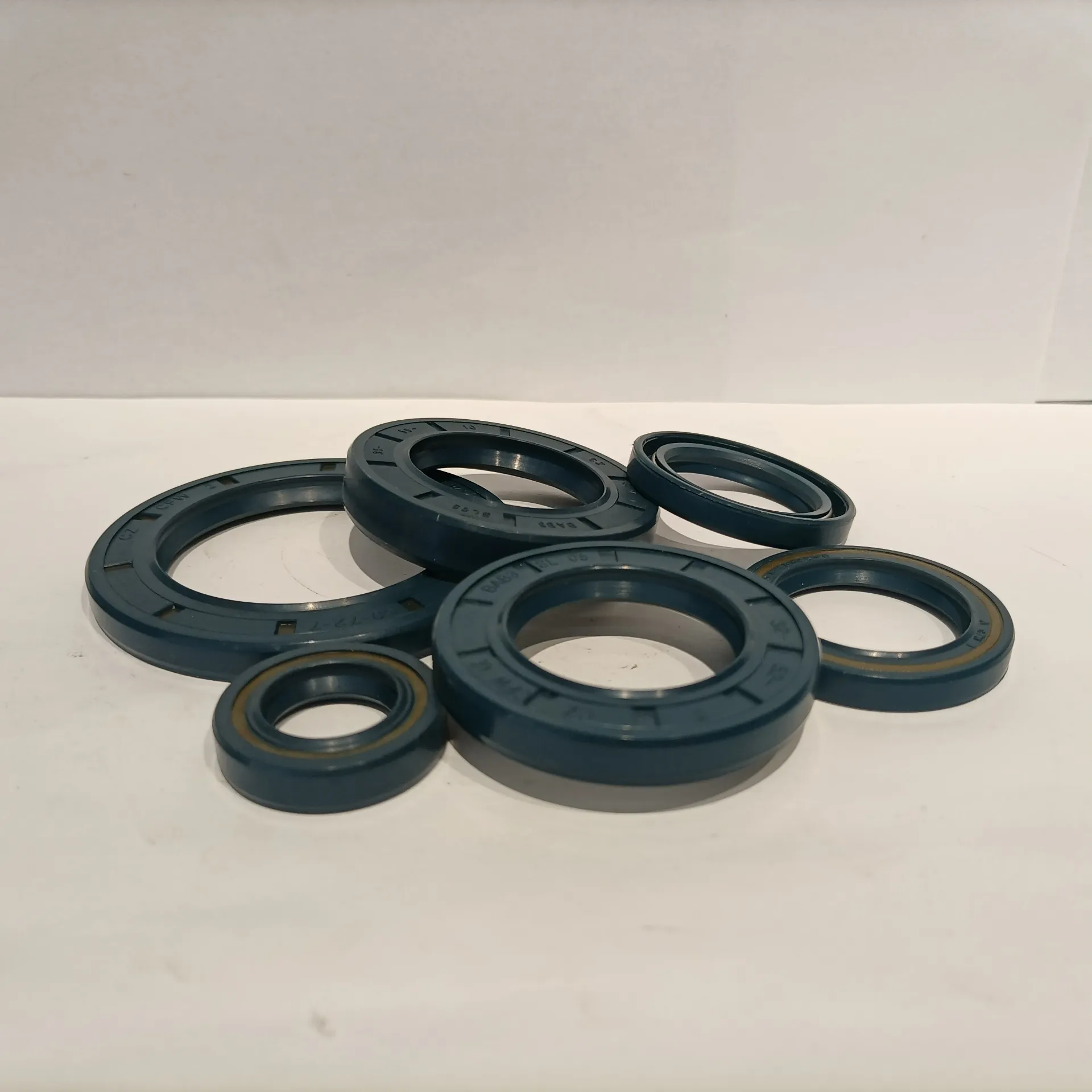Wheel Hub Oil Seal
A hub oil seal plays a critical role in ensuring the smooth operation and longevity of wheel hubs by preventing oil leakage and protecting against contaminants. One of the primary advantages of a hub oil seal is its ability to maintain proper lubrication within the wheel hub assembly. By sealing the area where the axle enters the wheel hub, it prevents oil or grease from leaking out, ensuring that the lubrication remains intact for optimal wheel hub performance. This is particularly important in high-load applications, where consistent lubrication is essential for reducing friction and wear on the bearings.
Another significant benefit is the hub oil seal's protective function against dirt, moisture, and debris that can damage the inner components of the wheel hub. The seal forms a barrier that prevents foreign particles from entering the hub assembly, which can otherwise lead to rust, corrosion, and premature failure of critical parts like bearings and shafts. This protective feature enhances the durability of the wheel hub, extending the lifespan of both the hub and other associated components.
Additionally, a hub oil seal helps improve overall safety and efficiency by preventing lubrication loss that could result in increased friction, heat buildup, and potential breakdowns. Whether used in automotive, heavy machinery, or industrial equipment, hub oil seals are designed to withstand harsh conditions, providing reliable, long-lasting performance. Their simple yet effective design helps keep maintenance costs low and minimizes downtime, making them a crucial component for any wheel hub system.
-

35*52*16 Standard Wheel Hub Oil Seal For Agricultural Machinery
-

-

Hub oil seal 40*65*13/14.5 suitable for tractor Cat 12018035b
-

Tractor accessories cassette oil seal hub oil seal 60-90-13.5/15
-

-

-
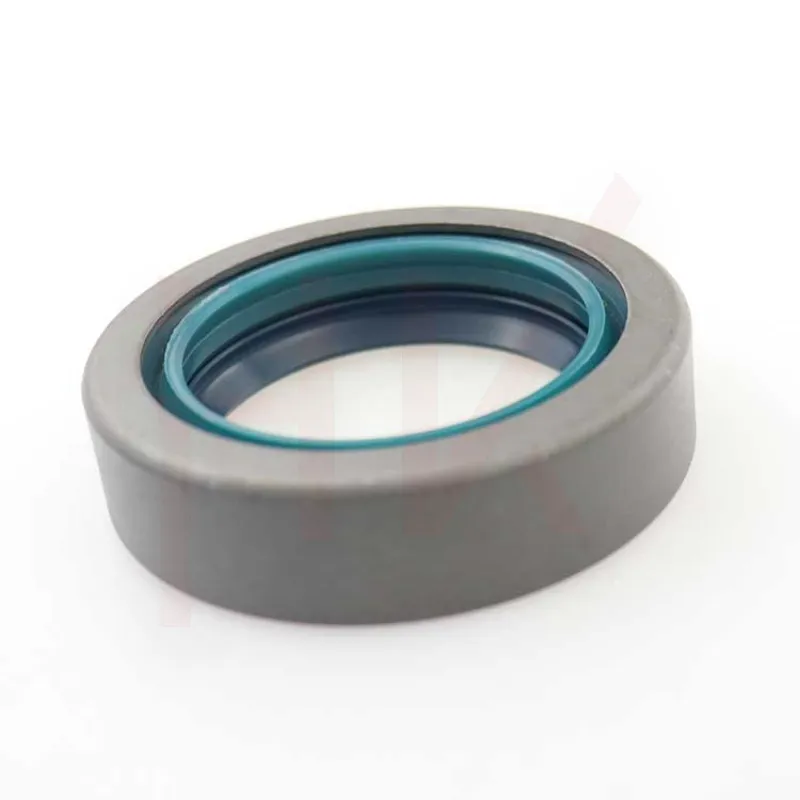
Combi Oil Seal 47*65*16.5 Tractor Oil Seal Agricultural Machine 12015734b
-
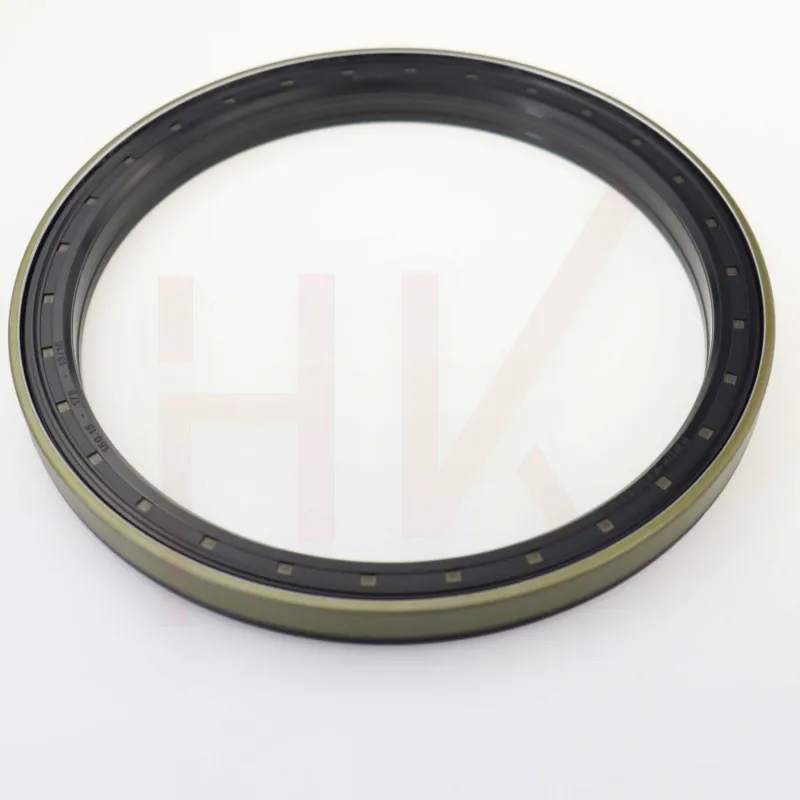
190*220*16/18 Rwdr-Kassette 12017120b 12018658b Hub Oil Seal
-
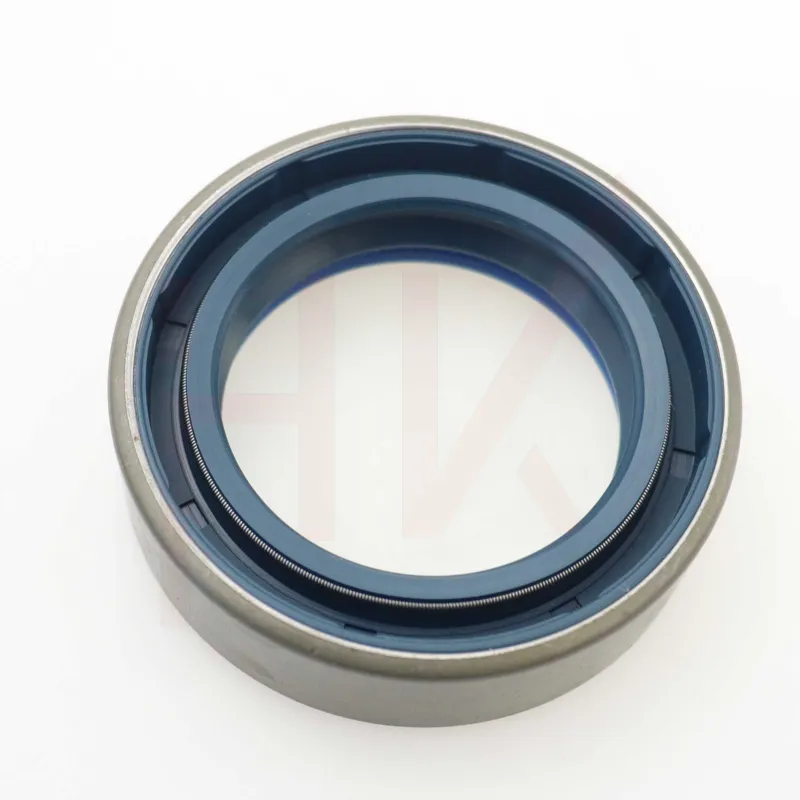
-
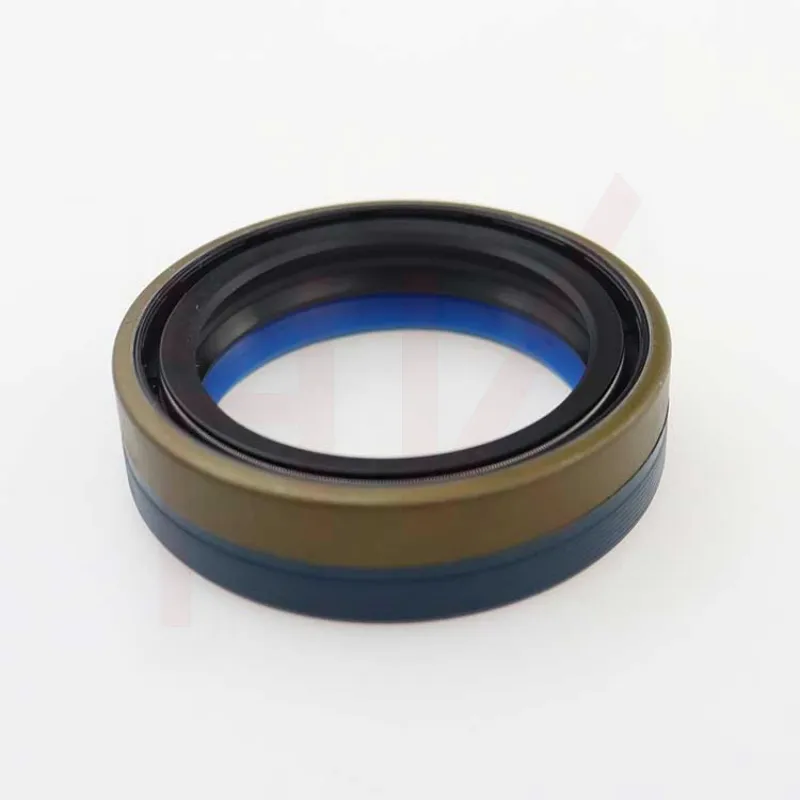
-

-
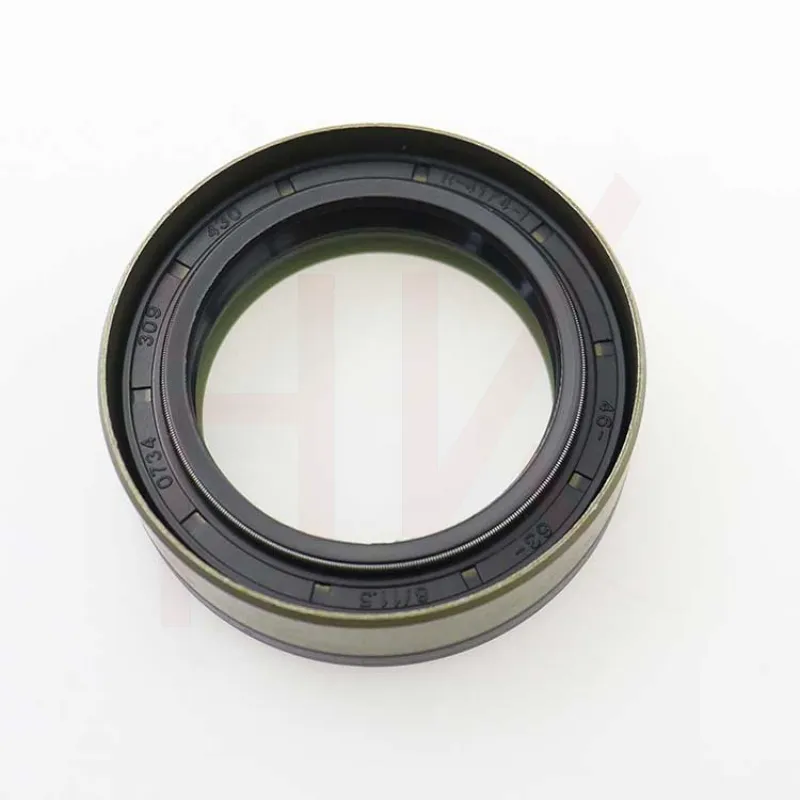
Wheel Hub Oil Seal 37*52*14.5 12019338b High Quality Shaft Seal Combination
How to Choose the Right Hub Oil Seal for Your Vehicle
1. Determine the Correct Hub Seals by Size
The first step in choosing the right hub oil seal is determining the correct size. The seal must match the dimensions of the hub and axle, including the diameter and thickness. Measure the outer diameter of the hub and the inner diameter of the axle shaft to ensure a precise fit. Most manufacturers provide size specifications in their product manuals or datasheets, so double-check these before purchasing.
2. Material Selection
The material of the hub oil seal plays a significant role in its performance and longevity. Common materials include:
Rubber Hub Seal: A popular choice for standard automotive and light-duty vehicles, rubber seals offer good flexibility, sealing performance, and resistance to oil, water, and temperature variations.
Polyurethane: Known for its high wear resistance, polyurethane seals are ideal for heavy-duty and off-road vehicles where extra durability is required.
Metal and Rubber Combinations: Some seals use a metal casing combined with a rubber or elastomeric sealing element. These are highly durable and often used in industrial and agricultural equipment.
Choose the material based on your vehicle’s operating environment, such as exposure to extreme temperatures, chemicals, or high pressure.
3. Seal Type
There are various types of hub oil seals, each designed for different applications. Some common types include:
Single Lip Seals: Most common in automotive applications, single lip seals prevent the oil from leaking while allowing for some movement.
Double Lip Seals: These seals have two sealing lips, offering enhanced protection against contaminants and providing a better barrier for preventing oil leaks.
Spring-Loaded Seals: These seals include a spring around the lip that ensures consistent contact with the axle, which can help maintain the seal's effectiveness over time.
Consider the operating conditions of your vehicle and whether additional protection, such as a double lip or spring-loaded seal, is necessary.
4. Environmental Conditions
The operating environment plays a major role in determining the best hub oil seal for your vehicle. If you frequently drive in wet, muddy, or off-road conditions, you'll need a seal that can withstand exposure to water, dirt, and dust. For vehicles in high-temperature environments or heavy-duty machinery, look for seals that offer superior heat resistance and durability.
The Role of Hub Oil Seals in Heavy Machinery
Hub oil seals play a crucial role in ensuring the reliable operation and longevity of heavy machinery, including construction equipment, mining vehicles, and industrial machines. These seals are essential for maintaining the integrity of wheel hubs and bearings by preventing contamination and fluid leakage, both of which can lead to costly repairs and downtime. Understanding the function and importance of hub oil seals can help optimize the performance and lifespan of heavy-duty machinery.
Preventing Fluid Leaks
The primary function of a hub oil seal is to contain lubrication fluid (oil or grease) within the hub assembly and prevent it from leaking out. In heavy machinery, the wheel hubs and axles are subjected to high stresses, including rotation, heat, and pressure. Without an effective sealing solution, these lubricants would escape, leading to friction and wear in the bearings. Oil seals provide a tight barrier, keeping the lubrication intact and allowing the moving parts to function smoothly without overheating or excessive wear.
Protection Against Contamination
In addition to containing lubrication, hub oil seals also serve to protect the wheel hubs and bearings from external contaminants such as dirt, water, and debris. Heavy machinery often operates in challenging environments like construction sites, quarries, and agricultural fields, where exposure to dirt and moisture is common. If these contaminants enter the hub assembly, they can damage the bearings, cause corrosion, and compromise the efficiency of the machine. A well-functioning hub oil seal prevents such intrusion, ensuring the hub assembly remains clean and protected.
Supporting Heavy Loads and High Speeds
Heavy machinery typically operates under extreme conditions, with large loads and high-speed rotations of the wheels. This creates significant stress on the wheel hubs and seals. Hub oil seals are designed to withstand these harsh conditions and provide a durable solution for maintaining the integrity of the hub assembly. They are made from materials that can handle high pressures and temperatures, such as elastomers, metals, and composites. These materials ensure that the seals maintain their performance over time, even when subjected to demanding workloads.
Reducing Maintenance Costs and Downtime
By preventing oil leaks and contamination, hub oil seals help reduce the need for frequent maintenance and costly repairs. When these seals fail, it can lead to excessive wear on bearings and other critical components, resulting in machine failure. Regularly inspecting and replacing the oil seals ensures that the machinery remains in optimal working condition, preventing costly breakdowns. This proactive approach minimizes downtime and extends the operational life of heavy machinery, making hub oil seals a key component in reducing maintenance costs.
Improving Safety and Efficiency
Another important benefit of hub oil seals is their contribution to the overall safety and efficiency of heavy machinery. When wheel hubs are properly sealed, the machinery operates more efficiently, with reduced risk of overheating or mechanical failure. This leads to smoother operation, better fuel efficiency, and improved safety for operators. By ensuring that the wheel hubs remain lubricated and protected from contaminants, the seals help maintain consistent performance, reducing the risk of sudden failures during operation.


